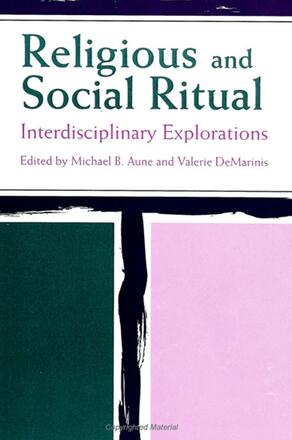
Religious and Social Ritual
Interdisciplinary Explorations
Alternative formats available from:
Examines particular rituals (social and religious) as a special kind of cultural performance or interaction in a wide variety of traditions and locations.
Description
In Religious and Social Ritual, ten scholars examine particular rituals as a special kind of cultural performance or interaction in a wide variety of traditions and locations. In so doing, they surface timely theoretical and methodological issues and engage fundamental questions such as how and why these performances and interactions do what they do. Each investigation is conducted with careful attention to cultural, cross-cultural, social, and contextual factors that make it possible to enter into the ritual participant's world and worldview. Moreover, these essays take seriously the interdisciplinary and cross-disciplinary emphasis of ritual studies and incorporate the historical, methodological, and autobiographical situations of their authors in responsible and graceful ways. For scholars, teachers, and students of ritual in a variety of settings, Religious and Social Ritual provides both significant scholarship and an invitation to further conversation about one of the most important topics in the contemporary study of religion and culture.
Michael B. Aune is Professor of Worship at the Pacific Lutheran Theological Seminary and Core Doctoral Faculty Member, Arts, Worship, and Proclamation at the Graduate Theological Union in Berkeley, California. He is the author of "To Move the Heart": Philip Melanchthon's Rhetorical View of Rite and Its Implications for Contemporary Ritual Theory. Valerie DeMarinis is Associate Professor at Uppsala University in Sweden. She is the author of Critical Caring and co-editor of Clinical Psychology of Religion: European and American Interdisciplinary Explorations.
Reviews
"This is a very timely work in a field of enquiry that has tremendous implications for human praxis. It articulates what many skilled practitioners of liturgical and ritual arts have known for centuries, but it does so within new 'episteme' (Foucault) or new styles of knowing and legitimating. It addresses cultural and religious activities that were wrongly denigrated by those rather conceited 'fathers' (and children) of the European Enlightenment. It will be an excellent text for graduate seminars, for theological courses, for intelligent laypeople in many religious traditions, and for a broad spectrum of courses in any contemporary university engaged in cultural studies. " — Robert M. Garvin, State University of New York at Albany